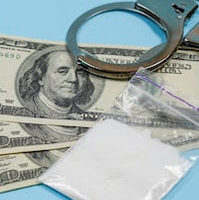Swissvale Barber Arrested for Selling Drugs Just Outside Barbershop

Drug “busts” involving undercover police or detectives are a familiar plot development in current movies and television series. The movies and series are entertaining viewing because of the dramatic irony: the seller does not know the true identity of the buyer, and the audience is waiting for that critical moment when the truth becomes known. Part of the entertainment value results from the transformation of the police officer or detective into a plausible drug purchaser, which involves a change of mannerisms, speech, and appearance. However, drug trafficking arrests of this nature are a reality, and frequently involve tasks forces involving local, state and federal agencies. Recently, an undercover criminal investigation resulted in the arrest of a barber on suspicion of selling drugs outside of his barbershop in the Swissvale suburb of Pittsburgh in Allegheny County.
How Undercover Operations Work
Typically, law enforcement officials become aware of suspected drug trafficking activities as a result of undercover surveillance in “high crime” areas, arrests, or cooperation by informants who have proven to be reliable by providing information that has led to arrests and convictions in previous investigations. Frequently, after a period of surveillance, an undercover officer or detective will attempt to purchase controlled substances from a retail street seller, who is a “bottom dweller” in the drug sales “food chain”. If the undercover agent is successful in concluding a sale or sales, the retail seller is arrested, and is offered an opportunity to “help” himself/herself by becoming a “confidential informant”. The purpose of CI is to provide historical background and to actively assist in criminal investigations of individuals higher up the chain of command.
Active assistance may involve court ordered electronic surveillance such as wearing a “wire” to record conversations to set up a “controlled buy”, typically in the presence and under the control of law enforcement officials. Ultimately, active assistance involves actual purchases by the CI of larger quantities of controlled substances from the targets or subjects of the drug trafficking investigation. Upon the successful completion of a drug transaction, the subject or target may be arrested immediately. Alternatively, the transaction or series of transactions may be the bases for the application for and execution of a search warrant(s) at the home, business or vehicle of the subject or target.
Active assistance by a CI may also involve testifying at trial, although it is an infrequent occurrence. A defense strategy involves filing a motion to produce and identify the CI and/or to dismiss the prosecution. The strategy has two purposes: 1) preserve the accused’s right to confront (i.e., cross-examine) witnesses who testify against him/her, and 2) force the Commonwealth to produce the CI or risk a dismissal of charges. The reality is that judges frequently, but not always, grant the Commonwealth’s request that the identity of the CI remain unknown in order to protect the safety of the CI and to preserve the confidentiality of other drug trafficking investigations in which the CI is involved.
In certain circumstances where the government or agents acting on its behalf coerce the accused into committing illegal, drug trafficking activity, i.e., doing something the accused would not normally do, the affirmative defense of entrapment may apply.
In the News
Until recently, Brian Torrey Smith was working as a barber in the Cut and Play barbershop in the Swissvale suburb of Pittsburgh. Despite the sign on the door of the barbershop that declares it a drug-free zone, extensive surveillance by local law enforcement officials confirmed that Smith was selling crack cocaine. Multiple individuals were observed interacting with Smith on the sidewalk outside the shop during work hours. In addition, the officials received several complaints about drug dealing activity in the area. After several months of surveillance, undercover agents set up a “buy” of cocaine from Smith. When the transaction was completed, Smith was arrested. According to the media reports, Smith is suspected of participating in an extended drug trafficking conspiracy.
Reach Out to an Attorney for Help
The severity of potential maximum penalties for the manufacture, delivery of possession with intent to deliver controlled substances will depend on the nature of the nature and quantity of the controlled substance, as well as the circumstances surround its seizure. If charged with drug trafficking, it is critical to retain an aggressive and experienced criminal defense lawyer to develop strategies and tactics necessary for a successful outcome in your case. Contact the Law Offices of Gary E. Gerson in Pittsburgh if you have been charged with a crime related to illegal drugs.
Resource:
pittsburgh.cbslocal.com/2018/10/11/swissvale-barber-busted-for-selling-crack/
